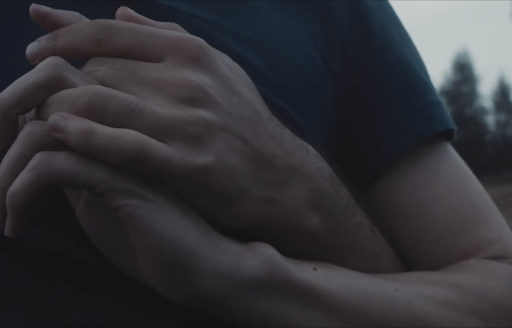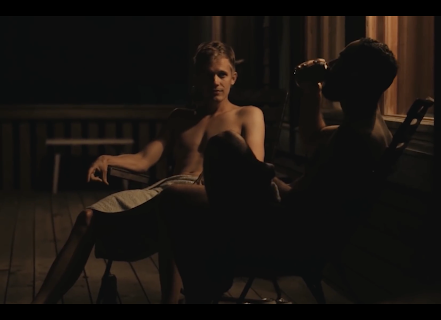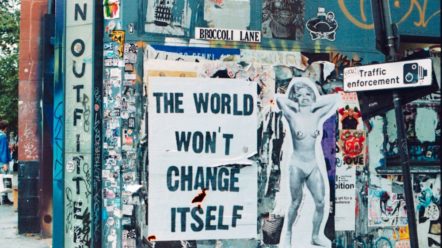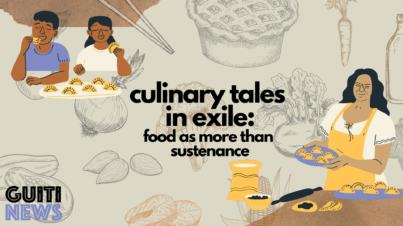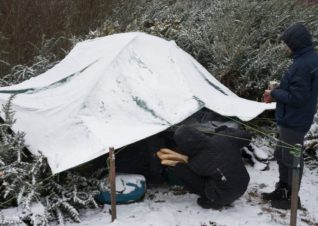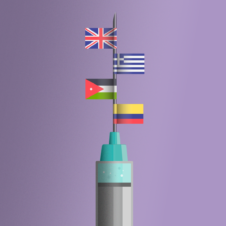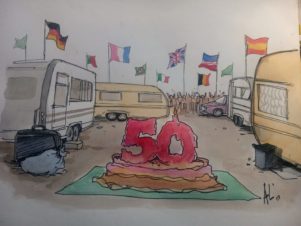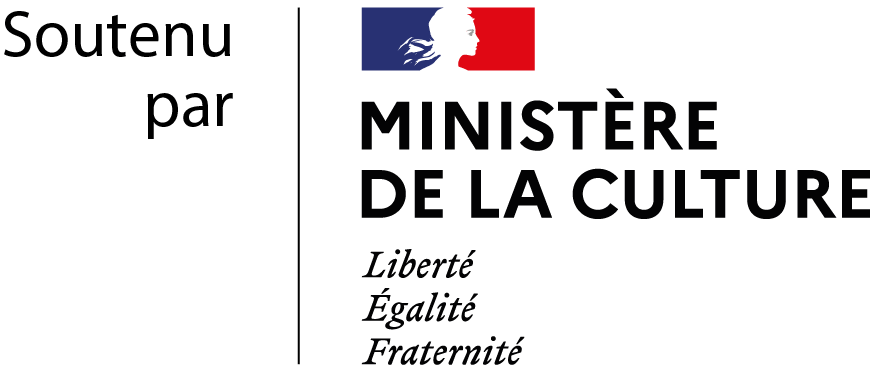Queerness and Exile in Cinema
This piece investigates the recent emergence of queer migrant films in contemporary European cinema that embrace an exilic tone. It focuses on the film A Moment in the Reeds, which was released in 2017. The film tells the story of Leevi, a Finnish man living in Paris for his studies, who returns home for the holidays, and of Tarek, a Syrian architect from a Muslim background, who fled homophobia and war to seek asylum in Finland. He is employed by Leevi’s father to renovate his lake house located in the countryside. It is at this isolated and natural place that the two men start to build a relationship.
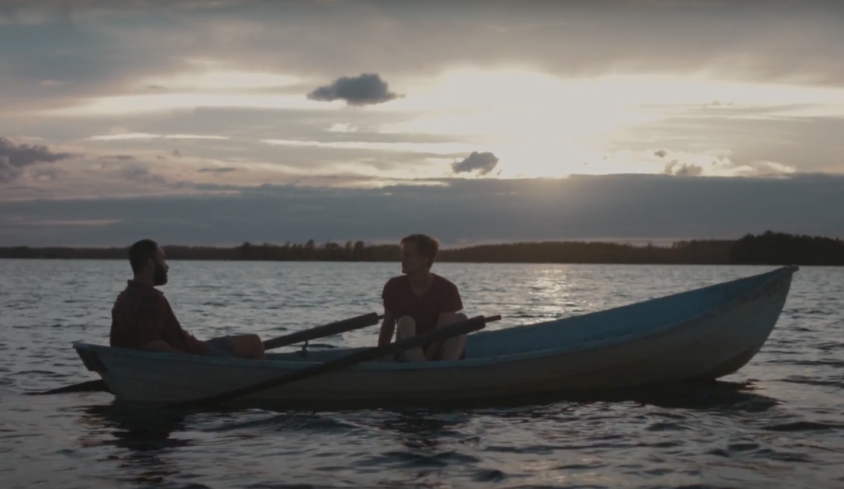
The filmmaker of A Moment in the Reeds, Mikko Makela, is Finnish-British and based in London. In an interview, he states his will to “make a film that focuses on the lives of people who aren’t seen on screen in Finland, because it is quite a homogeneous country, ethnically, certainly – but increasingly diverse. I wanted to make something to challenge mainstream audiences, as well.”
His creative process and films theme is rooted in the emergence of movies that are at the intersection of different genres and movements, creating an extension to it. In the case of A Moment in the Reeds: crossing and challenging national borders and capturing untold and non-visible stories.
Globalisation and mobilities have shown how Third cinema – an aesthetic and political cinematic movement in Third World countries representing alternatives to Hollywood – is now more focused on displacement, exile, and diaspora than previously. It is also the case that the emergence of feminism and queer studies in both Western and non-Western societies has initiated the beginning of queer-oriented films as a political and radical response to the heteronormative nature of mainstream cinema. More significantly, the so-called ‘refugee crisis’ since 2015 also explains the relative quantitative increase in queer films that embrace the exilic genre.
Why is accessing these films challenging?
As the encounter between both exilic and queer tone is very ‘niche’, these films are very difficult to access, even when they do exist. That may be due to targeted invisibilisation within traditional channels or even the result of a lack of funding. In addition, these films are doubly disadvantaged within the Global Film Industry, as they talk about minorities.
Moreover, as a result of homophobic narratives, and risks that implicate the production of queer narratives and stories remain present in the world. Indeed, in more than 70 countries around the world, homosexuality is criminalised. Rafiki, directed by Wanuri Kahiu, is the most recent example of such risks materialising. This film, being the first Kenyan lesbian love story, was banned by the Kenyan Film Classification Board immediately after being broadcast and has never formally been accessible to a Kenyan audience. Many press articles have talked of Kahiu’s fear of returning to Nairobi, afraid of persecution.
The notion of identity is central. A double identity by being both queer and exile: intersectionality.
What are the main themes of this genre?
There is some evidence that the exilic and queer genres can be similar in the modalities of representation and the politics of encounter. Identity is a fundamental driver in exilic films as much as in queer ones. They are an exploration of both “nation and migration as gendered concepts that are implicated in ethnocentric, heteronormative and patriarchal regimes of power”.
In other words, films like A Moment in the Reeds appear as reflective of a multidimensional performance and formation of the identity. They are transformative depending on the place you belong and the encounters you make.
In few other migratory films such as God’s Own Country (2017), when queerness appears as an additional parameter, the notion of identity becomes even more central in a double dimension related to the multi-faceted experience of difference and otherness. The position of queerness regarding exilic experiences holds a particular position, mainly secondary and not at the centre of the plot.
The notion of intersectionality in films operates a shift from queer-oriented to queer-normalised to open room for other crucial social issues such as racism and xenophobia. It portrays sexual orientation as not directly coupled with the uprootedness that implies migratory but remains secondary and latent while the racial encounter with the otherness is central.
Both identities also operate a sort of alliance when the film becomes a tool for political, social, and activist struggles by challenging the traditional way queer and migration films represent their characters. The dichotomic portrayal of migrants/heterosexual and queer/citizens is revisited.
In line with this work of fiction, we see these elements reflected in true realities as in Diako Yazdani’s documentary: The Many Lives of Kojin (2019). It tells the story of a political refugee in France, Diako Yazdani, who returns to Iraqi Kurdistan to visit his family, accompanied by Kojin, his homosexual friend. In his first film, the director reflects on how much he himself has evolved, confident that he was once homophobic. This call for tolerance goes hand in hand with a cry for better reception of refugees in Europe.
How are Queer Muslims represented?
In the case of A Moment in the Reeds, the cinematic representation of the queer Muslim protagonist mainly fits within the assimilationist and metaphorical narratives. It is assimilationist as, while Tarek has rejected all the values of Islam, considering it to be a ‘repressive cultural context’, he then “embraces the Western gay narrative and abandons the values of the communities of origin”. It is also metaphorical because his relationship with Leevi transcends the dichotomic encounter between ‘himself’ and the ‘other’. In the construction of their love story, they revisit the expected frontiers of difference by producing a space of dialogue and exploration, in the sense that being gay is fore and foremost universal.
However, Tarek is portrayed as being westernised in many ways and serves to deconstruct stereotypes of Muslim otherness; depicted as the ‘good refugee’: educated, integrated, compromising, even though Leevi’s father was violent and racist. He drinks alcohol, asserts that he received a high level of education in Syria, and dreads a potential family reunification, fearing to see his homophobic family back in his daily life. Even though they live in a war-torn country and will begin a dangerous journey through the Mediterranean to reach Europe.
Europe inevitably appears as the physical and symbolic place of freedom and freedom of sexuality, based on imaginary and universal pre-conceptions (such as the acknowledgment of Le Marais in Paris as representing European Queerness). The plot is not centered around his coming-out, neither his reluctant revealing, nor rejection of self. The story is confined in a queer-normalised framework that depicts homosexuality, not from a human rights perspective but rather the search for sexual freedom.
As a consequence, A Moment in the Reeds is framed in the call for universalism as it absorbs non-white experiences and narratives within the dominant Western narratives. Indeed, in the dialogues which form the process of building their relationship, Leevi and Tarek create some parallelisms and comparisons between the migratory exile from Syria to Europe and rural-urban migration.
There is then a tension between the need to diversify representations of migrants and refugee subjects from hetero-normalisation and the extent to which bridges can be built between the two different experiences, without questioning ethical issues and the meaning of doing so.
Providing spaces for queer-exiled filmmakers’ voices?
A Moment in the Reeds, like most of the films produced since 2015, was produced by Western filmmakers. In this sense, the call for universalism in sexual identities may render invisible the multitude of voices and differences.
The absence of exiled and queer filmmakers in contemporary film questions the notion of representation and positionality. It appears evident that the percentage of queer filmmakers abroad and escaping their home country due to their sexual orientation is very hard to estimate. While the label ‘political migrant/refugee’ often prevails during their application processes. Furthermore, queer refugees/migrant filmmakers, once they arrive in the country they applied asylum for, struggle to integrate into the cinema industry because of a lack of material and social networks.
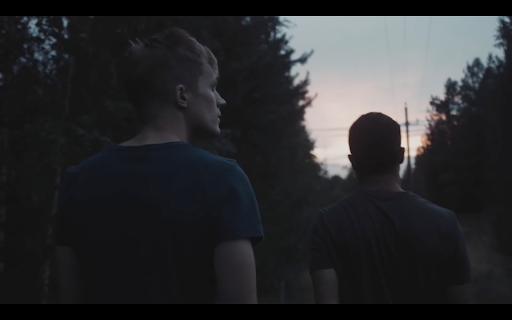
Finally, the absence of producers, companies or collective organisations which provide a framework directly promoting queer accented cinema, continues to marginalise exiled filmmakers and prevents them from making movies about queerness and exile.
What’s next?
Places of resistance and dialogue between queer migrant films from both the West and non-Western countries are emerging. For instance, half of the feature films broadcasted by the unique festival were dedicated to the intersection between queer and migration in the Netherlands: IQMF-International Queer & Migrant Film Festival are directed by non-Western countries.
The increase in numbers of series, films, documentaries, and festivals dedicated to the intersection between queer sexualities and migration/exile themes must be encouraged. They challenge the possibility to imagine a contemporary ‘queer exilic’ accent framed in the interactions between queer, exilic, transnational and intercultural cinemas. These forms of resistance and production of a different knowledge must, however, first be produced by filmmakers who are directly concerned by the social and political issues that implicate a film on queerness and migration. To do so, it is then urgent to create safe and inclusive spaces such as film festivals, cinemas and more, allowing queer filmmakers to produce more films.
Pictures: Mikko Makela
